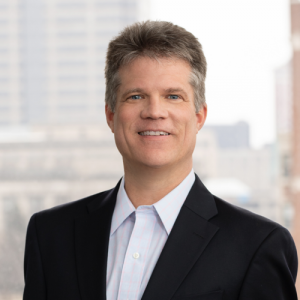In an effort to ensure that skilled nursing homes (“SNFs”) can quickly and regularly test residents and staff for COVID-19, HHS announced the procurement of U.S. Food and Drug Administration authorized rapid point-of-care diagnostic test instruments and tests to be distributed to SNFs.
HHS intends to initially distribute antigen testing instrument systems and tests to SNFs in COVID-19 hotspots or SNFs that have three or more cases.
Each SNF will receive one antigen testing instrument and approximately 400 associated tests. The specific number of tests will depend on the number of the SNF’s staff and residents. In a national call on Wednesday, July 15, CMS representatives shared that the number of tests initially sent to the SNF should cover approximately six weeks of testing for the SNF. Following the initial distribution, SNFs can obtain additional tests directly from the test manufacturers. SNFs must have the capability to screen and test residents, and test staff on a weekly basis or according to specific guidance by the state and local health departments.
CLIA Certificates
The tests that will be distributed are authorized for use at the point of care, which means in patient care settings such as a SNF operating under a Clinical Laboratory Improvement Amendments (“CLIA”) Certificate of Waiver, CLIA Certificate of Compliance or CLIA Certificate of Accreditation.
SNFs without CLIA Certificates of Waiver
Under CLIA, a laboratory is a facility that performs applicable testing on materials derived from the human body for the purpose of providing information for the diagnosis, prevention or treatment of any disease. Waived tests are those that are simple laboratory procedures that have an insignificant amount of risk of an erroneous result.
Many SNFs have existing CLIA Certificates of Waiver. One national association estimated that about 10% of SNFs do not have CLIA Certificates of Waiver.
SNFs can enroll in the CLIA program by completing an application (Form CMS-116) and sending the application to SNFs local state department of health or health agency.
SNFs will also need to check with their state department of health for any other state-specific requirements.
SNFs with more than one location or are part of a group of commonly operated SNFs will need to check CLIA regulations and guidance.
After the SNF’s application is accepted, the SNF will receive a ten-character alpha-numeric code on the CLIA certificate. This number will be used to identify and track the SNF.
New Policies and Procedures Needed
- SNFs will need to create new policies and procedures for the COVID-19 antigen testing.
- SNFs will need to train staff on the new testing instruments.
Costs
While HHS intends to supply each SNF with a six week supply of tests, each SNF may then obtain additional tests directly from the respective manufacturers. HHS estimated that each test will cost $25 and HHS will not reimburse SNFs for those costs.
Action Items and CLIA Certificate of Waiver Help Available
SNFs should:
- Apply for a CLIA Certificate of Waiver, if the SNF does not currently hold a Certificate;
- Create COVID-19 antigen testing policies and procedures; and
- When the testing instruments arrive, train and orient staff on procedures and use of the testing instruments.
If you have questions about this topic or would like assistance with your CLIA Certificate of Waiver application, please contact:
- Sean Fahey at (317) 977-1472 or sfahey@wp.hallrender.com;
- Todd Selby at (317) 977-1440 or tselby@wp.hallrender.com;
- Brian Jent at (317) 977-1402 or bjent@wp.hallrender.com; or
- Your regular Hall Render attorney.
More information about Hall Render’s Post-Acute and Long-Term Care services can be found here.
Hall Render’s attorneys and professionals continue to maintain the most up-to-date information and resources at our COVID-19 Resource page, through our 24/7 COVID‑19 Hotline at (317) 429-3900 or by contacting your regular Hall Render attorney.
Hall Render blog posts and articles are intended for informational purposes only. For ethical reasons, Hall Render attorneys cannot—outside of an attorney-client relationship—answer specific questions that would be legal advice.



